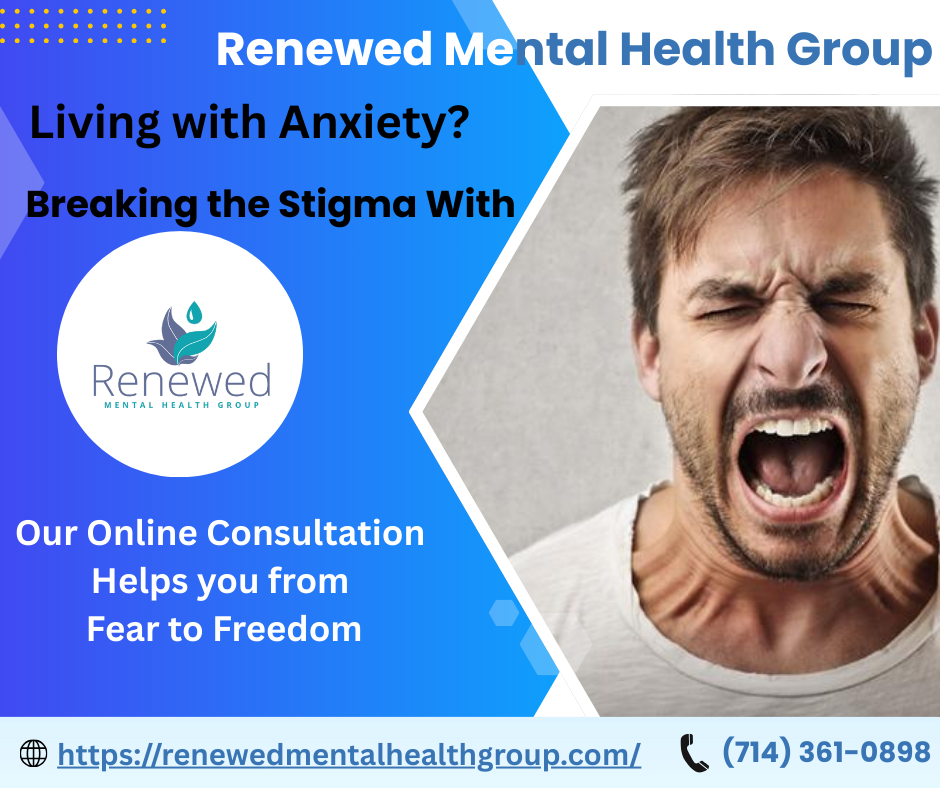Depression is more than just feeling sad or having a rough day. It’s a serious mental health condition that can deeply affect how you think, feel, and act. For many people, the first signs are subtle—tiredness, irritation, or losing interest in things they once loved. Over time, depression can change how you view yourself, others, and the world. It affects behaviors, thoughts, and daily habits, often without you even realizing it.
If you’re searching for depression treatment in Ontario, you’re not alone. Recognizing how depression impacts your mind and behavior is the first step toward getting help and beginning your recovery journey. With effective depression treatment and access to professional mental health services, you can regain control of your thoughts and life.
Understanding Depression: More Than Just a Low Mood
What Depression Feels Like
Depression isn’t just “being down.” It can feel like a fog that never lifts or a heavy weight you carry all day. Many people describe it as emotional numbness or deep sadness that doesn’t seem to go away. But it’s more than feelings—depression influences thoughts, decisions, and behaviors in many ways.
It Changes Your Thinking Patterns
One of the most powerful effects of depression is how it distorts your thoughts. You may start to think you’re worthless or that nothing you do matters. Thoughts like:
- “I’ll never get better.”
- “I’m a burden to others.”
- “There’s no point in trying.”
These negative thought patterns aren’t truths—they’re symptoms. Depression affects the brain’s chemistry, making it harder to think clearly and see things in a balanced way.

Behavioral Changes Caused by Depression
1. Withdrawal from Social Activities
When you’re depressed, things you used to enjoy no longer feel fun. You might stop seeing friends, skip hobbies, or avoid family. This isolation isn’t laziness or rudeness—it’s a common symptom of depression.
Unfortunately, withdrawing from others can make depression worse, creating a cycle that’s hard to break.
2. Changes in Daily Habits
Depression can throw off your sleep, appetite, and hygiene. You may sleep too much or struggle with insomnia. Eating habits may change—you might lose your appetite or eat for comfort. Even small tasks like brushing your teeth or taking a shower can feel overwhelming.
These behavior changes are often the first red flags that something deeper is going on.
3. Trouble Making Decisions
Depression affects your ability to concentrate and make choices. Something as simple as picking what to wear or deciding what to eat can feel exhausting. People with depression may avoid decisions altogether, which adds to the sense of helplessness.
4. Decreased Productivity and Motivation
At work, school, or home, depression can lead to lower performance. You might struggle to finish tasks or feel like you can’t get started at all. This can make you feel guilty or ashamed, even though it’s a part of the illness—not a personal flaw.
Emotional & Mental Changes from Depression
1. Increased Irritability and Frustration
People often think depression means being sad all the time. But it can also cause anger and irritability. You might snap at loved ones, feel easily annoyed, or get frustrated with yourself. These emotions are tied to the stress and confusion depression brings.
2. Low Self-Worth
Depression can make you feel like you’re not good enough. You might replay past mistakes in your mind or believe others would be better off without you. This harsh inner critic is not your true voice—it’s the depression talking.
3. Hopelessness and Negative Worldview
Over time, depression can darken your outlook. Things that once gave you hope or joy seem pointless. You may believe nothing will ever improve, even when that’s not true. This outlook makes it harder to reach out for help—but that help is essential and effective.
How Mental Health Services Help Break the Cycle?
Getting Support Matters
Professional mental health services offer tools and guidance to manage depression. You don’t have to figure it all out on your own. Therapists, counselors, and support groups can help you understand your symptoms and develop strategies to overcome them.
Therapy Approaches That Help
Different types of therapy like cognitive behavioral therapy (CBT), talk therapy, and mindfulness-based therapy have been proven effective in treating depression. These therapies help you recognize negative thought patterns and replace them with healthier ones.
With proper depression treatment, your thoughts and behaviors can change in a positive direction.
Depression Can Be Treated—You’re Not Stuck Forever
It’s important to understand that depression is not permanent. It can be treated, managed, and even fully overcome with time, support, and the right approach. Just like physical illnesses, mental health conditions need proper care—and recovery is possible.
Commercial Content: Renewed Mental Health Group – Your Partner in Healing
If you or someone you love is struggling with depression, Renewed Mental Health Group is here to help. Based in Ontario, they offer compassionate and personalized care designed to meet you where you are.
Their team of licensed therapists, counselors, and mental health professionals works with individuals and families to treat depression, anxiety, trauma, and more. Using a combination of evidence-based treatments and supportive therapy sessions, they help you build resilience and find relief.
Renewed Mental Health Group makes it easy to access quality mental health services—whether you need in-person care or prefer virtual sessions from the comfort of home. You’re not alone, and you don’t have to go through this in silence. Healing starts with a single step.
Final Verdict
Depression changes how you think and act, but it doesn’t define who you are. With the right support and resources, recovery is not just possible—it’s probable. Don’t wait for things to get worse. If you’ve noticed changes in your thoughts, behavior, or daily routines, it might be time to talk to someone.
The journey to healing starts with awareness and action. Whether it’s through therapy, support groups, or professional depression treatment in Ontario, help is within reach. And if you’re also experiencing symptoms of anxiety, know that effective anxiety treatment in Ontario is available as well.

